After examining recipes written based on students' favorite fairy tales, students research a recipe related to their favorite story, book, or fairy tale and include it in a classroom recipe book.

A Recipe for Writing: Fairy Tale Feasts
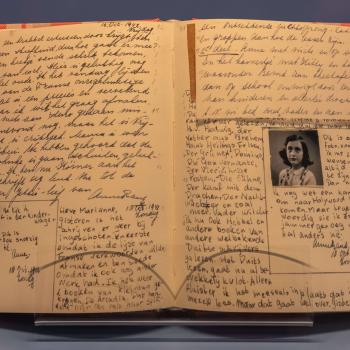
Grades
|
Writing for Audience: The Revision Process in The Diary of Anne Frank
6 - 9
Lesson Plan
| Standard Lesson
After reading or viewing The Diary of Anne Frank, students will make connections between audience and purpose and revise a journal entry with an outside audience in mind.

Grades
|
Boars and Baseball: Making Connections
4 - 7
Lesson Plan
| Standard Lesson
In this lesson, students will make text-to-self, text-to-text, and text-to-world connections after reading In the Year of the Boar and Jackie Robinson. After sharing and discussing connections, students choose and plan a project that makes a personal connection to the text.
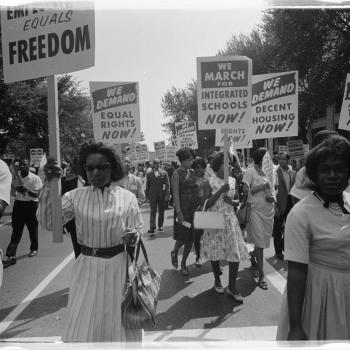
Grades
|
Examining the Legacy of the American Civil Rights Era
11 - 12
Lesson Plan
| Standard Lesson
As part of their study of Richard Wright's Black Boy, students research and reflect on the current black-white racial divide in America. By examining the work of literature in the context of contemporary events, students will deepen their understanding of the work and of what it means to be an American today.

Grades
|
Fantastic Characters: Analyzing and Creating Superheroes and Villains
6 - 8
Lesson Plan
| Standard Lesson
Students analyze characterization by creating their own superheroes or super-villains,
complete with related gadgets and settings.

Grades
|
The Great Service-Learning Debate & Research Project
9 - 12
Lesson Plan
| Standard Lesson
Students debate about incorporating service-learning into their school's curriculum.
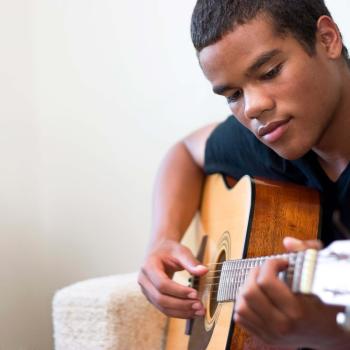
Grades
|
Songs of Our Lives: Using Lyrics to Write Stories
5 - 10
Lesson Plan
| Standard Lesson
Students learn about the life and music of John Lennon, write a short story from their lives integrating lyrics from some of their favorite songs, and create a class book of stories.
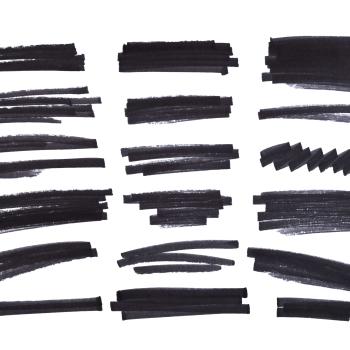
Grades
|
Cut up, Cover up, and Come Away with Ideas for Writing!
6 - 8
Lesson Plan
| Standard Lesson
Students rework their forgotten/abandoned drafts by cutting and covering up selected words. By creatively manipulating text, they explore portal writing, a strategy for envisioning a new story or story direction.

Grades
|
Creative Writing in the Natural World: A Framing
4 - 8
Lesson Plan
| Minilesson
Students practice writing detailed, sensory-rich descriptions by framing a small piece of nature and freewriting about it. From this minilesson, students can develop a variety of types of writing.

Grades
|
The Mysteries of Harris Burdick: Using Illustrations to Guide Writing
5 - 9
Lesson Plan
| Standard Lesson
Students use illustrations from The Mysteries of Harris Burdick as a guide to write mysteries
and then present their stories to the class for students to discuss to which illustration each
story corresponds.

Grades
|
Investigating Genre: The Case of the Classic Detective Story
9 - 12
Lesson Plan
| Standard Lesson
After critiquing a list of conventions for the genre, students read, view, or listen to a classic
mystery, and then produce a mystery of their own, reflecting on the purposeful ways in which
they adhered to or altered the genre conventions.

Grades
|
Facilitating Student-Led Seminar Discussions with The Piano Lesson
9 - 12
Lesson Plan
| Standard Lesson
August Wilson's play The Piano Lesson invites students to ask a number of questions—big
and small. Students learn how to create effective discussion questions and then put them to use in student-led discussions.

Grades
|
Color My World: Expanding Meaning Potential through Media
3 - 6
Lesson Plan
| Standard Lesson
Using different writing/drawing materials (e.g., markers, color pencils, pastels, etc.), students learn how to communicate different moods and/or feelings to support their written ideas and how authors do the same through their work.
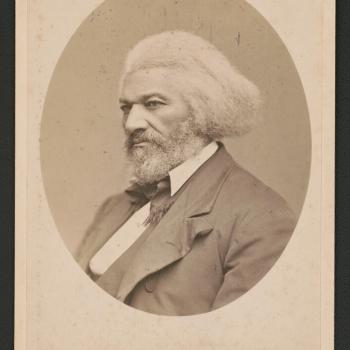
Grades
|
Comparing Portrayals of Slavery in Nineteenth-Century Photography and Literature
6 - 12
Lesson Plan
| Standard Lesson
In this lesson, students analyze similarities and differences among depictions of slavery in The Adventures of Huckleberry Finn, Frederick Douglass' Narrative, and nineteenth century photographs of slaves. Students formulate their analysis of the role of art and fiction, as they attempt to reliably reflect social ills, in a final essay.
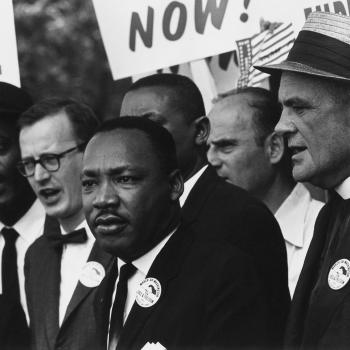
Grades
|
Analyzing Famous Speeches as Arguments
9 - 12
Lesson Plan
| Standard Lesson
Students are often asked to perform speeches, but rarely do we require students to analyze speeches as carefully as we study works of literature. In this unit, students are required to identify the rhetorical strategies in a famous speech and the specific purpose for each chosen device. They will write an essay about its effectiveness and why it is still famous after all these years.
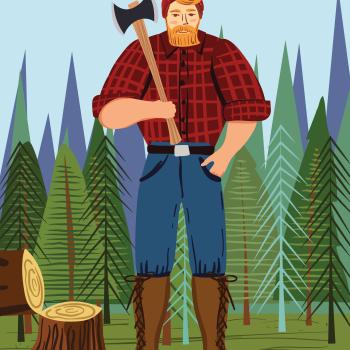
Grades
|
American Folklore: A Jigsaw Character Study
3 - 6
Lesson Plan
| Standard Lesson
Groups of students read and discuss American folklore stories, each group reading a different story. Using a jigsaw strategy, the groups compare character traits and main plot points of the stories. A diverse selection of American folk tales is used for this lesson, which is adaptable to any text set.
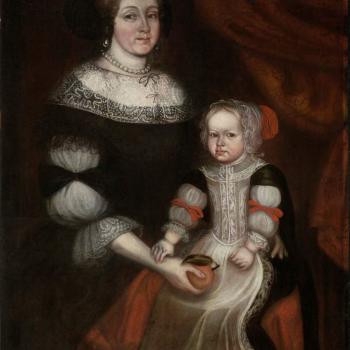
Grades
|
An Exploration of The Crucible through Seventeenth-Century Portraits
9 - 12
Lesson Plan
| Standard Lesson
In this lesson, students incorporate analyses of characters from The Crucible with examinations of original seventeenth-century portraits of Puritans to create a visual portrait of the character. The project culminates in a "Portrait Gallery Walk" where students present and defend their artwork.
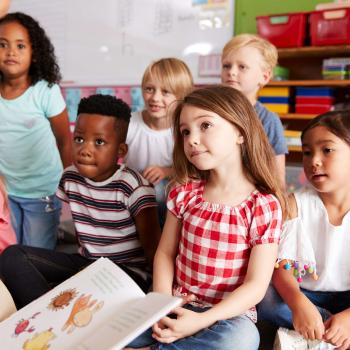
Grades
|
Guided Reading Strategies with Henry and Mudge
1 - 3
Lesson Plan
| Standard Lesson
In this lesson, students read Henry and Mudge and the Starry Night as a whole group as the teacher models a questioning strategy. In subsequent sessions, students practice the questioning strategy and reread for fluency.

Grades
|
I Have a Dream: Exploring Nonviolence in Young Adult Texts
9 - 12
Lesson Plan
| Standard Lesson
Students will identify how Martin Luther King Jr.'s dream of nonviolent conflict-resolution is reinterpreted in modern texts. Homework is differentiated to prompt discussion on how nonviolence is portrayed through characterization and conflict. Students will be formally assessed on a thesis essay that addresses the Six Kingian Principles of Nonviolence.
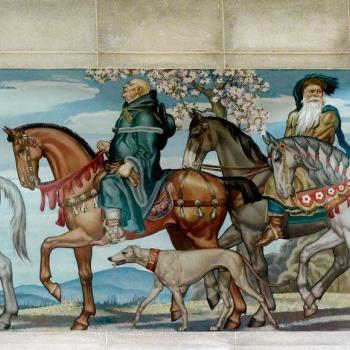
Grades
|
Exploring The Prologue to The Canterbury Tales using Wikis
9 - 12
Lesson Plan
| Standard Lesson
Students study Chaucer's Canterbury Tales not just for its rich language, but also for the insights it provides into the Middle Ages. Using wikis, students collaborate to study both literature and history on their own terms. They create meaning and build information networks using tools Chaucer himself would have loved.